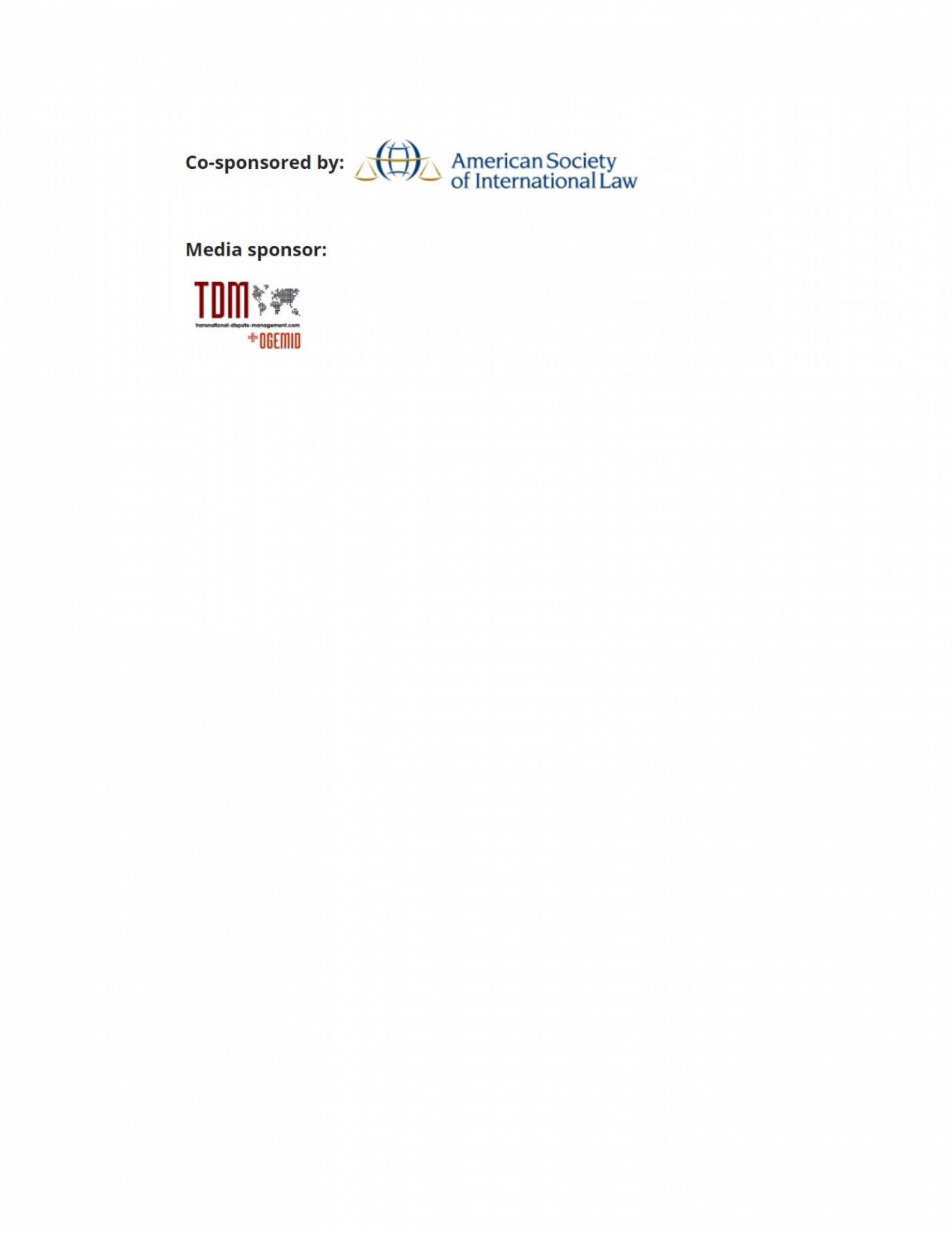The full program is available here.
The Columbia Center on Sustainable Investment offered a one-day workshop with CLE credit on investment arbitration and human rights. Human rights law can affect states’ obligations regarding treatment of foreign investors and investments, and investment arbitrations can have important implications for human rights. Nevertheless, there remains significant uncertainty regarding whether and how to integrate human rights considerations into arbitral proceedings.
This workshop:
– examined which human rights issues may be implicated in investment disputes, as well as how and to what extent the issues have been handled by parties and arbitrators
– provided an overview of human rights norms and frameworks that are relevant to investors and governments
– explored how parties might effectively raise human rights norms and issues in the course of an arbitration
– evaluated the roles and obligations of tribunals in considering such arguments
Philippe Sands (Barrister in the Matrix Chambers, Professor of International Law at University College London; and frequent arbitrator in investor-State disputes) delivered the Keynote.
Panelists included:
– Eric W. Bloom, Partner, Winston & Strawn LLP
– Kaitlin Cordes, Head, Investment in Land and Agriculture, Columbia Center on Sustainable Investment
– Anthony Ewing, Lecturer in Law, Columbia Law School; Partner, Logos Consulting Group
– Lise Johnson, Head, Investment Law and Policy, Columbia Center on Sustainable Investment
– Susan L. Karamanian, Associate Dean for International and Comparative Legal Studies, Professorial Lecturer in Law, The George Washington University
– Lucinda Low, Partner, Steptoe & Johnson LLP
– Renu J. Mandhane, Director, International Human Rights Program, University of Toronto, Faculty of Law
– Julie Maupin, Senior Research Fellow, Max Planck Institute for Comparative Public Law and International Law
– Rahim Moloo, Of Counsel, Gibson, Dunn & Crutcher, LLP
– Andrea Saldarriaga, Investment and Human Rights Project Lead, Laboratory for Advanced Research on the Global Economy, London School of Economics
– M. Sornarajah, CJ Koh Professor of Law, National University of Singapore
The workshop was geared primarily toward counsel and arbitrators participating in investment arbitrations, as well as human rights practitioners with interest in investment disputes and their impacts. Other interested stakeholders were also welcome.
Information Regarding New York CLE Credits:
Columbia Law School has been certified by the New York State Continuing Legal Education (CLE) board as an Accredited Provider of CLE programs. Under New York State CLE regulations, each live non-transitional CLE panel will provide one (1.0) credit hours that can be applied toward the Areas of Professional Practice requirement. CLE credit is awarded only for full attendance of a panel in its entirety. Attorneys attending only part of a Program are not eligible for partial credit for it, although they are most welcome to attend it. Attendance is determined by an attorney’s sign-in and sign-out, as shown in the Conference registers. Please note that there will be separate registers for each CLE panel, with sign-in and sign-out required for each one. On sign-out, attorneys should also submit their completed Evaluation Form, provided at the Conference. Please note that NYS Certificates of Attendance will be sent out to the email address as it appears in the register unless otherwise noted there.

